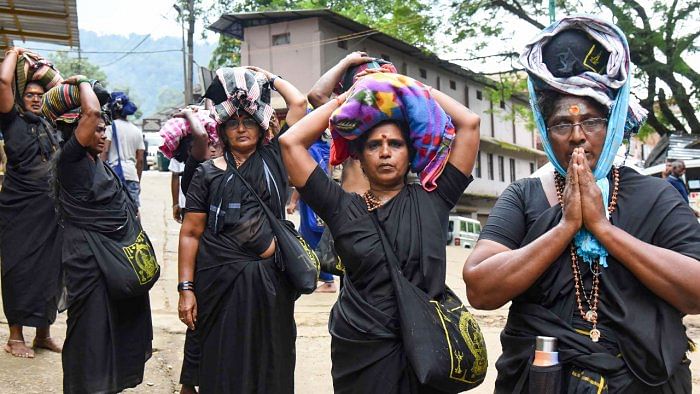
A bid by a CPI(M) central committee leader to dilute the party stand on Sabarimala women entry issue has caused embarrassment to the party over the leader’s remark that dialectical materialism theory was not practical in the present context.
CPI(M) leader from Kerala M V Govindan made the statement the other day at a time when the stand of the CPI(M)-led government in Kerala on Sabarimala women entry issue is being actively discussed as the state heads for Assembly polls. Govindan said that feudalism still existed and a large section of the society still firmly holds to a different religion. Hence the theory of dialectical materialism was not practical.
While Govindan maintained that what he said was CPI(M)’s official line, CPI(M) politburo member S Ramachandran Pillai on Monday openly expressed his difference with Govindan’s view. Pillai said that dialectical materialism theory was never impractical. Being a novel ideological tool based on science and logic it would be always practical, he said.
Meanwhile, both Govindan and Pillai were of the view that further discussion would be required on the Sabarimala women entry issue once the SC order on review petitions came. Pillai said that the opinion of the people and a consensus was important on Sabarimala women entry issue.
The Opposition Congress-led United Democratic Front has indeed put the CPI(M)-led Left Democratic Front in tough spot by triggering the Sabarimala issue and pressuring the left-front to clarify its stand on the issue. The CPI(M) earlier stuck to a progressive approach and tried to enforce the Supreme Court order of 2018 lifting the restrictions on women between the age of 10 and 50 (considered menstruating age) to the hill shrine, but the setback in the Lok Sabha polls that followed is now forcing the CPI(M) to dilute its stand.